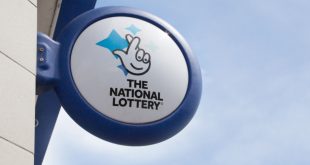Speaking to the Lotteries Council on Thursday 19 April, Marc Etches, the Chief Executive of industry charity GambleAware, has called for UK lottery stakeholders and Camelot operator of the National Lottery to increase their donations for problem gambling prevention, research and treatment.
Etches comments come a few weeks following the UK’s Public Accounts Committee’s publishing of its report into the ‘Future of the Lottery’ on 5 April, detailing future management of National Lottery funding programmes.
“You will have seen that we are not happy with the current level of donations from Camelot or the lack of safer gambling messages at the point of sale across the 40,000 ticket outlets, and have said so publicly. Parliament’s Public Accounts Committee has given Camelot six months to increase its donations, and we welcome that.”
Leading GambleAware, an independent charity tasked to fund research, education and treatment services to help reduce problem gambling harm within the UK, Etches has urged the Lotteries Council to make a contribution that ‘reflects fairly the nature of its membership’.
At present, the annual donation on behalf of the 375 Lotteries Council members is £1,800, the equivalent of approximately £5 per member.
GambleAware feels this should be increased to £185,000, the equivalent of approximately 0.1% for the whole sector, excluding the National Lottery. The charity details that it values lotteries as a ‘fundraiser for good causes’ and has factored this into their calculation of donations.
Addressing UK lottery stakeholders, Etches details, what GambleAware believes is a misconception, stating ‘that safer gambling measures are not relevant to lottery products.
“Lotteries are a form of gambling as their activities can cause gambling-related harm, just like any other gambling product, so the sector should have similar safer gambling measures in place in keeping with the rest of industry
“It is my contention that the lotteries sector has a particular responsibility when it comes to the promotion of safer gambling and the protection of your players. I say this on the basis that: Lottery products are gambling products. Lottery products in total are participated in by more people than any other gambling product. Given the overall number of participants and the nature of ‘problem gamblers’ to play on multiple products, the lottery sector has more contact with ‘problem gamblers’ than any other gambling sector.”









